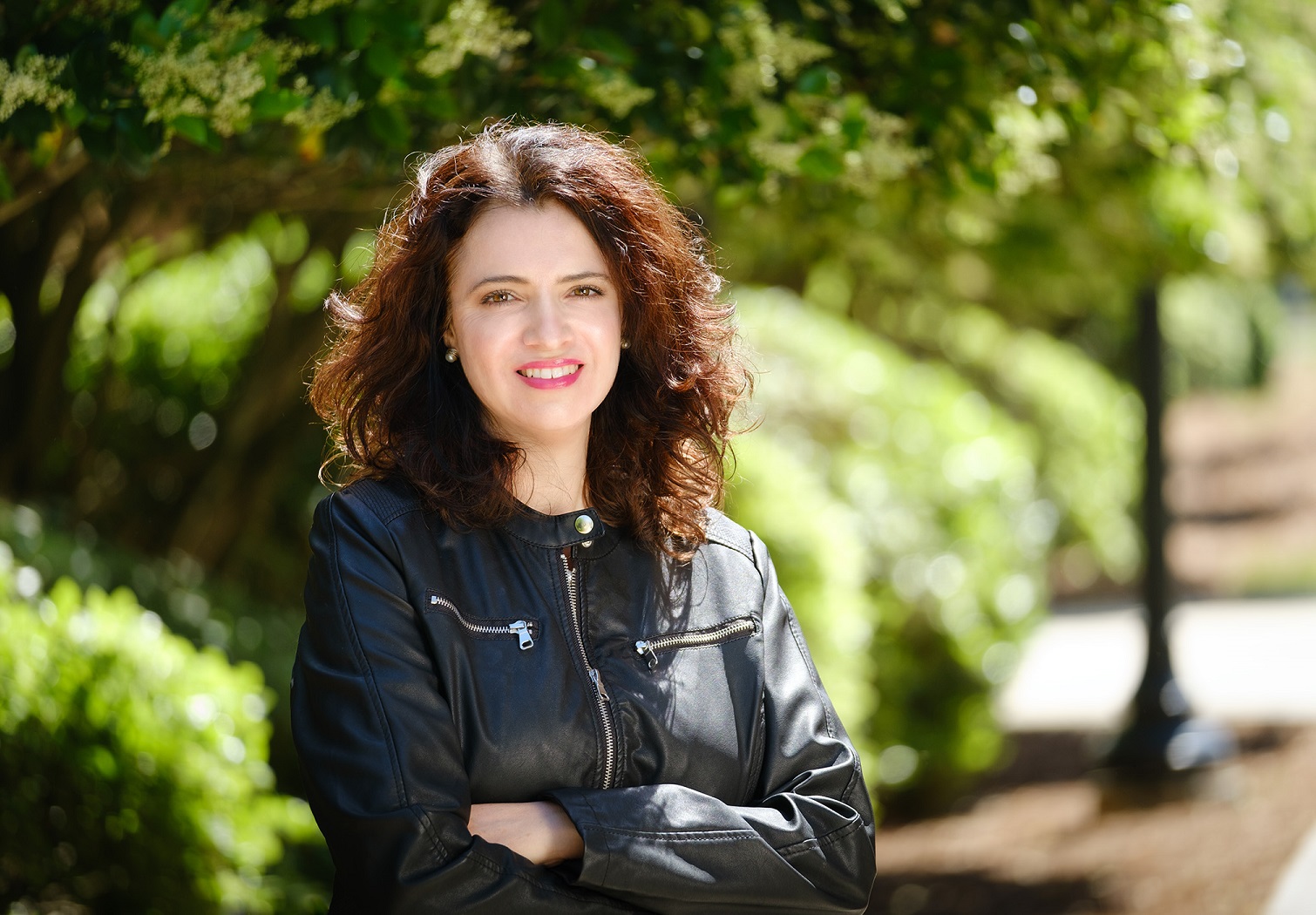“Interview” features Q&As with both professionals and users of the mental health system on topics of special interest to parents and families. They are designed to provide a closer look at new research, trends, and people.
In September, a groundbreaking survey of 10,000 young people reported in the science journal Nature* found that young people are experiencing a host of negative emotions around the effects of climate change — and what that means for their future. Some 84% of the youth said they were anywhere from moderately to extremely worried about it, and the majority expressed sadness, fear, helplessness, and anger.
Biostatistician and public health expert Jennifer Barkin, Ph.D., M.P.H., an Associate Professor of Community Medicine and Obstetrics and Gynecology at the Mercer University School of Medicine and a parent herself, grew so concerned about this trend that she expanded her research agenda to include climate impacts on the family unit. As she and her colleagues wrote in a study published earlier this year and discussed in this interview, “Global estimates project that children will be disproportionately impacted by the changing climate — shouldering 88% of the related burdens.”
A biostatistician and psychiatric epidemiologist, Dr. Barkin was formerly an analyst at the University of Pittsburgh’s Epidemiology Data Center, where she designed the Barkin Index of Maternal Functioning (BIMF), the first patient-centered wellness assessment tool focusing on mothers’ daily lives during the first year after giving birth. She is a peer reviewer for journals including Archives of Women’s Mental Health and serves on the Board of Directors for Postpartum Support International, Georgia Chapter.
Q: Your background is in bio-statistics and maternal well-being. How did you get interested in the links between climate and mental health?
A: As a public health professional, I’ve always been interested in the environment. However, my being a mother of two got me thinking more intensely about what this existential crisis (climate change) means for mental health. My son will ask me, “Mom, what happens if we can’t stop climate change?” and “Mom, what if all the bees die?” I wasn’t worried about whether the earth could continue to support human life at the age of 10, and I wonder about the downstream effects.
However, we need our young people to be better stewards of the earth than we were, so, in a way, his painful level of awareness may be necessary. As a mother, and with heat illness on the rise, I have to think about whether outdoor summer camps are even something I’m comfortable with — a lot of people are going to get caught flat-footed in terms of rising global temperatures because it’s insidious, but not obvious, like a hurricane.
Q: What prompted you and your colleagues write the journal article “Effects of Extreme Weather Events on Child Mood and Behavior” in Developmental Medicine and Child Neurology?
A: Most studies examine findings from singular weather events — like Hurricane Katrina, for example — and we wanted to produce a more comprehensive characterization of the mental health effects of extreme weather events (EWEs). Trained in psychiatric epidemiology, I had the expertise to look at a number of mood symptoms — and so we did.
Q: What did you look at and how— what did the paper do that was new?
A: Instead of focusing on a singular weather event, we used broad search terms so that many types of weather events would be represented in the scientific literature we reviewed. Wildfires, tornados, tropical storms, flooding, drought, and extreme heat exposure were all qualifying events. From there, we synthesized our findings and told the mental health story. Across EWEs, what psychological symptoms and behaviors were observed? Does EWE exposure equate to short or long-term symptoms? What are the protective and risk factors? What are the implications for screening and treatment?
Q: Let’s look at some of the major findings of this study. What did you learn about the psychological and behavioral effects of extreme weather events and other climate-change-related phenomena on children in the short and long term?
A: Posttraumatic Stress (PTS) is the most common/studied symptom of childhood EWE exposure; however, elevated rates of depression, anxiety, and negative externalizing behaviors have also been observed. The term “externalizing behaviors” refers to a grouping of negative behaviors that are outward-facing, meaning you can observe them. They include aggression, delinquency, substance abuse, and hyperactivity. Myriad studies have demonstrated that long-term ramifications are possible, especially where risk factors outweigh protective effects — for example, where events are chronic (rather than rare) and loss level is high. However, the health sciences literature has also established that children are largely a resilient group. So, it is the delicate interplay between protective and risk factors (along with other intangibles) that influences a young person’s recovery trajectory.
Q: What are some of the risk factors and protective factors for how children and youth respond to climate impacts?
A: The biggest risk factor, by far, is level of exposure/degree of loss. For example, a community that has repeated flooding has more difficulty recovering because the exposure is chronic — and not a one-off. In addition, loss, which can be financial, health-related, or social, influences mental health. The greater the loss, the greater the mental health impact. Protective factors include coping style (the ability to reframe the event in a positive light), social support, and strong parental support. In fact, several studies (such as this one) have shown that children whose parents/caregivers were present during the EWE fared better than children who were separated from their parents/caregivers.
Q: Does the research point to practical things kids and caregivers can do to ease climate and extreme weather-related distress to help them become resilient?
A: Yes! Posttraumatic Growth, or PTG, is the ability to reframe the event/exposure in the most positive light possible. Individuals with greater capacity for PTG are at a distinct advantage because they can find the upside in having gone through a traumatic experience due to climate. Like any other trauma, one’s coping style is influential in the recovery process. Certain types of ruminating or re-hashing the events can hinder recovery. Of course, access to social and financial resources is also helpful. In terms of heat exposure, I encourage people to be more cognizant of the heat index and daily air quality, which can be checked on airnow.gov. Heat and air pollution are related, so read up on how you can avoid the outdoors on days with poor air quality.
Q: From a professional standpoint, you write that post-disaster screening and treatment for parents and children can be valuable. What might such screening look like, given that the mental health symptoms correspond to an understandable reaction to events?
A: I am by no means an expert on post-disaster screening/treatment, but I will say that one major challenge is that securing basic needs (food, shelter, utilities, re-opening schools) comes first in post-disaster environments, and mental health can take a back seat. Complementary and Alternative Medicine (CAM Therapy) has been studied to a degree with somewhat mixed results; CAM therapy can include activities such as journaling, yoga, and meditation. The upside to CAM therapy in often resource-depleted, post-disaster settings is that it is low-to-no cost and can be practiced on one’s own schedule. Strong parental support is advantageous to child recovery.
Q: Please tell us about your current research into creating a “climate distress index.”
A: We interviewed individuals that both “believe in climate change” and are impacted by it: coastal Floridians, mothers, and farmers. The idea is to have the respondents inform the item development for the index. So, for example, when I developed the Barkin Index of Maternal Functioning (BIMF), we asked new mothers to define what low and high maternal functioning looked like — which makes sense, since they were the ones experiencing the condition of interest (postpartum functioning). With the Climate Distress Index, which is under development, we asked individuals to tell us what factors made them feel stressed and, conversely, better about climate change.
Q: How would this index be used to understand and address climate-change-related distress, especially in children/youth and in parents?
A: This question gets at the conundrum of climate (change) anxiety — because a certain amount of discomfort is needed to drive [positive] change. Others have asked me this question and as an academic, the first application I envision for the index is in research studies where the study of distress (due to climate change) is a main or secondary focus. However, we did not anticipate industry use with the Barkin Index and it was picked up for a series of high-profile clinical trials — a very nice surprise. To answer your question, if we can quantify and identify those with high levels of climate distress, we will be more informed in strategically directing clinical resources.
Q: You’ve advocated for health professionals like yourself to get involved in addressing climate change as a part of their job. Can you tell us a little about the work you do that is illustrative? (And how do you get around the claim, “healthcare professionals should not get political”?)
A: I think it’s a shame that pandemics and climate change (both science-based) have become political. I’m hoping, as a society, we can get past this because nature is going to do her thing regardless — and the clock is ticking. I’m a proud member of the Georgia Clinicians for Climate Action, which is a state chapter under the Medical Society Consortium on Climate and Health; both organizations have the important goal of educating the public, other clinicians, and policymakers about the health effects of climate change. As the Vice Chair of my academic department at the Mercer University School of Medicine, I have advocated for the inclusion of a course focused on the impact of climate change on clinical practice; that course is now included in our curriculum and approximately 150 medical students will benefit from the content each year.
*Correction: Though the study was reported in Nature, the actual article appeared as a preprint in the medical journal The Lancet; Mad in America‘s October 8 Research News story summarizes the Lancet article.
***
MIA Reports are supported, in part, by a grant from the Open Societies Foundation
















I had a very hard time relating to this article. I really think health professionals have more important things to do than address climate change. I’m sure young people are unhappy about global warming. But how about their distress at Covid lockdowns, gun violence, incompetent therapists, over medication for such things as depression and ADHD, social difficulties exacerbated by Facebook manipulations, and the excessive burden of student loans.
I’m not convinced that global warming is a major factor in the mental health of most young people.
Report comment
Climate change doesn’t affect our mental health at all.
The constant, extreme(and nearly always false) claims made about it in the media affect our mental health
The constant attempts to make individual working class people feel like they’re responsible affects our mental health
The constant attacks on our quality of life affect our mental health
The cognitive dissonance of this false narrative we all know isn’t reality affects our mental health
Report comment
To both of the above posters, I refer you to our Science News section today, which details the Lancet report on youth attitudes about climate change which surveyed 10,000 people worldwide and reflects results seen over and over in such surveys.
According to this study’s authors:
“…some common ways adults and governments respond to climate change primarily involve dismissing, ignoring, disavowing, rationalizing, and negating the negative experiences of others. As a result, the anxiety young people feel around ecological disasters is compounded by the impression that influential people do not care about the problem.
The authors reject the popular narrative of blaming climate change on irresponsible individual behaviors and instead say it is precisely these powerful entities that must act to combat climate change. To remedy climate change’s negative mental health impacts, the authors propose increased psychosocial resources, coping skills, and agency.”
In other words, we need to support these youth who fear for their future and hold institutions to account for inaction. Climate change is happening whether one believes in it or not.
Report comment
I’d be OK with this idea, if the title were changed. It’s not “mentally unhealthy” to be worried about climate change.
It would be better to entitle it something like, “Climate Change is an Inherently Depressing Concept.” Or “People Feel Bad About the Idea that the Climate Is Deteriorating and there Is Nothing They Can Do About It.” Or “Climate Change is Pretty Fucking Scary!” Something that validates that it is not “unhealthy” to have real feelings about real events.
Report comment
Not sure what you’re referring to, Steve…the title asks *how* climate change affects youth, which doesn’t suggest that it should or shouldn’t affect them. Of course it affects them negatively; how can having their life turned upside down by a hurricane or flood not affect a kid?
And Dr. Barkin’s work acknowledges that being upset about the crisis is a natural reaction, which perhaps doesn’t come out enough in this interview. She does note, “a certain amount of discomfort is needed to drive [positive] change.” Meaning we need to help kids cope with their distress, even as we help them to channel it into pushing for constructive action by leaders with the power to do something.
Report comment
Being affected by a problem is different from linking that problem to mental health. There’s an unfortunate tendency for too many things to be framed as a mental health issue. It’s one of the ways psychiatry has insinuated itself into all aspects of society.
I have a vision (or is it a nightmare) of the next issue of the DSM adding a disorder called youth climate change anxiety.
Report comment
I wouldn’t rule it out – they can make up anything and call it a “disorder” and no one bats an eyelash, no matter how stupid or insipid. Consider that “Intermittent Explosive Disorder” and “Oppositional Defiant Disorder” are assigned with all seriousness by “mental health professionals” despite the ridiculousness of such “disorders.” The DSM is an absurdity, so one more absurd “disorder” won’t make it any worse.
Report comment